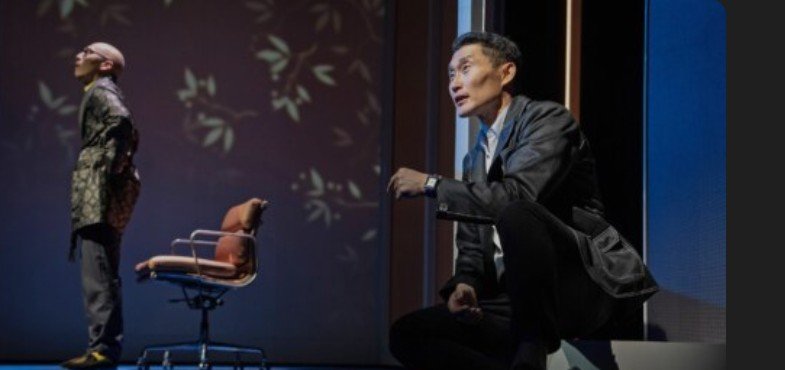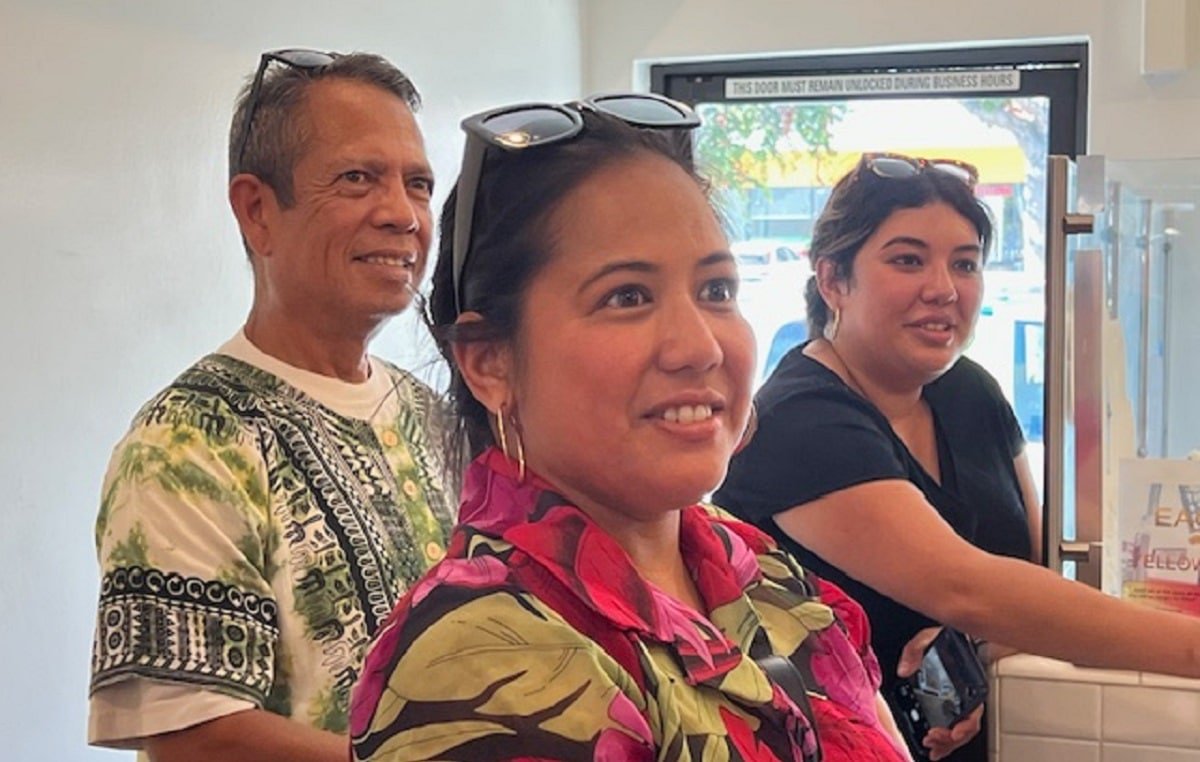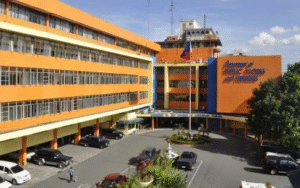by Jana Monji
This year, Daniel Dae Kim made history as the first Asian American to receive a Best Actor in a Play nomination and even those who couldn’t make it to NYC and see him on Broadway can see that performance because of PBS. Yet PBS has always been telling our story and not just with its Great Performances program.
While it is lovely to see AAPI actors in lead roles during Asian Pacific Islander Heritage Month with films like Lilo & Stitch or play productions like the national tour of The Life of Pi those are projects that spring from the imaginations of people outside the AAPI communities. PBS has reliably allowed AAPI voices be heard.
In Los Angeles, the Asian American theater scene was once polarized by the Berkeley-born Frank Chin’s vehement attacks against the Los Angeles-born Hwang. Chin’s own play, The Year of the Dragon, which premiered in 1974 at the American Place Theatre starring Randall Duk Kim, was filmed with George Takei as the lead for PBS Great Performances in 1975. Chin’s play looks at the problem of working in a tourist industry that commodifies the exotic. In this case, it’s Chinatown, but we see this issue being raised today in films like the fictional feature Moloka’i Bound or the documentary, Te Puna Ora (The Source of Life).
This year’s Tony Awards did have an Asian American first: Darren Criss won Best Actor in a Musical for Maybe Happy Ending. Ironically, Yellow Face looks at the protest against the very White Welsh actor Jonathan Pryce playing a biracial character in Miss Saigon. Pryce played it with yellow face in London, but went without it for Broadway. Ultimately, Pryce became another White person winning an award for playing someone of East Asian descent when he won a Tony for Best Performance by an Actor in a Leading Role in a Musical in 1991. That’s the same category Criss won this year.
Just a few years before Miss Saigon, the US had rampant Japan-bashing and anti-Asian hate was on the rise. The 1987 documentary, Who Killed Vincent Chin? aired on PBS POV in 1989. One of the directors of that documentary, Renee Tajima-Peña, was the lead producer for the 2020 PBS Peabody Award-winning five-hour PBS documentary film series Asian Americans.
In 2021, PBS had specials such as Asian American Journalists Speak Out on the spa shooting in Atlanta and Rising Against Asian Hate: One Day in March. Beginning in 2022, PBS presented Asian Americans & Pacific Islanders: A Philadelphia Story.
These news and feature stories about the AAPI communities might not be told without PBS. Plays written by AAPI writers that star AAPI actors might not be filmed and streamed without PBS.
Last week (12 June 2025), the Republican-dominated House voted to take back funds already approved for PBS. Congress had already approved funding through annual spending bills. This was at the direct request of President Donald Trump, who accused NPR and PBS of bias against his viewpoints and is part of his attack on the mainstream media that has been critical of his first and current presidential administration. Now the bill goes to the Senate.
PBS chief executive and president, Paula Kerger, has stated that “If these cuts are finalized by the Senate, it will have a devastating impact on PBS and local member stations, particularly smaller and rural stations that rely on federal funding for a larger portion of their budgets. Without PBS and local member stations, Americans will lose unique local programming and emergency services in times of crisis.”
As Kerger notes, news is only part of the programming of PBS. PBS has continually and reliably supported Asian American and Pacific Islanders through programming and streaming, in both as creative artists and through documentaries to prevent our histories from being ignored or erased. Currently, PBS has a campaign: Protect My Public Media which currently urges people to contact their senators to vote no on the rescissions package. While our museums like the Japanese American National Museum in Los Angeles and the Chinese Historical Society of America in San Francisco are fighting to preserve Asian American history, negative and positive, and there’s a move toward building a nationalAsian American Pacific Islander Museum, PBS helps reach a wider audience of all ages and has consistently emphasized inclusiveness. PBS has been and is a community ally which may go away if it doesn’t get more support and that might mean that future generations won’t see the works of Asian American and Pacific Islanders on national TV and online.
The Protect My Public Media website makes it easy to contact your senators. For more information visit ProtectMyPublicMedia.org.
To view “Great Performances: Yellow Face,” visit Great Performances (Season 52, Episode 16).
Support our June Membership Drive and receive member-only benefits. With less than 10 days left in our fundraising drive, we are 41% of our goal of $10,000 in new donations and monthly and annual donation pledges and 28% of our goal of gaining 25 new recurring donors by the end of the month. Please help to ensure quality content in amplifying the voices of the AAPI community.
We are published by the non-profit Asian American Media Inc and supported by our readers along with the Robert Wood Johnson Foundation, AARP, Report for America/GroundTruth Project & Koo and Patricia Yuen of the Yuen Foundation.
You can make your tax-deductible donations here via credit card, debit card, Apple Pay, Google Pay, PayPal and Venmo. Stock donations and donations via DAFs are also welcomed. Contact us at info @ asamnews dot com for more info.











